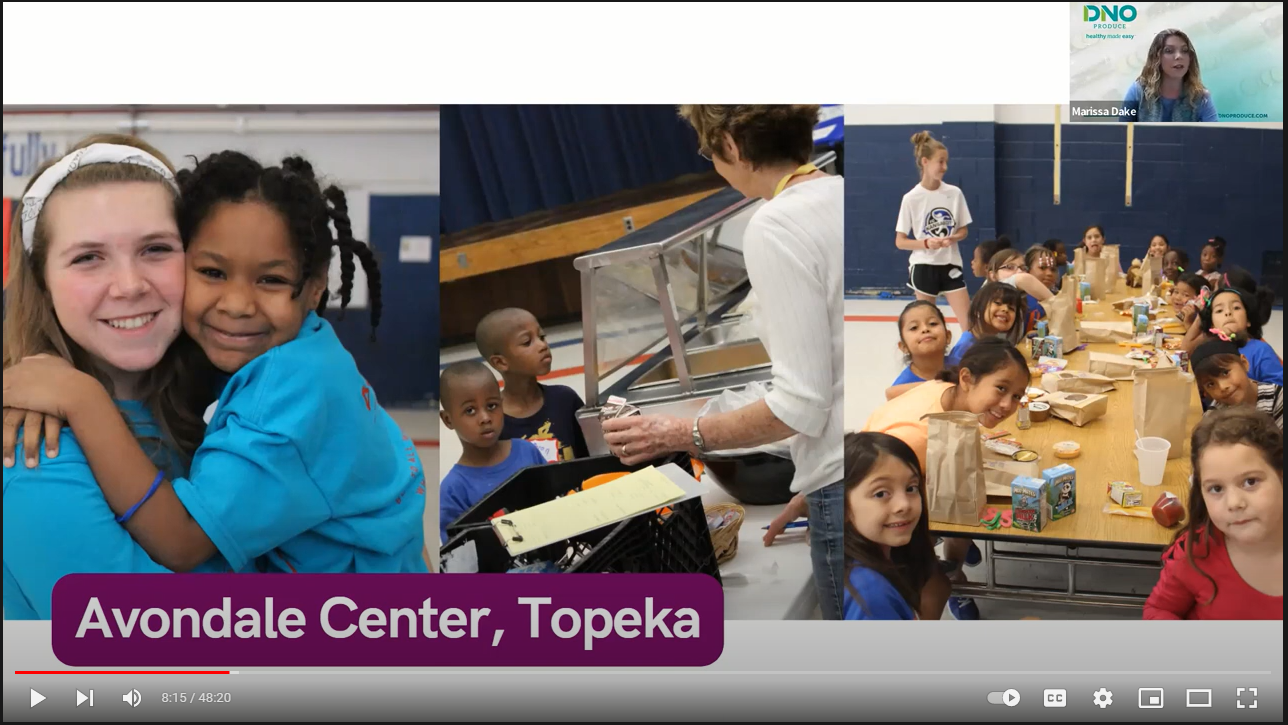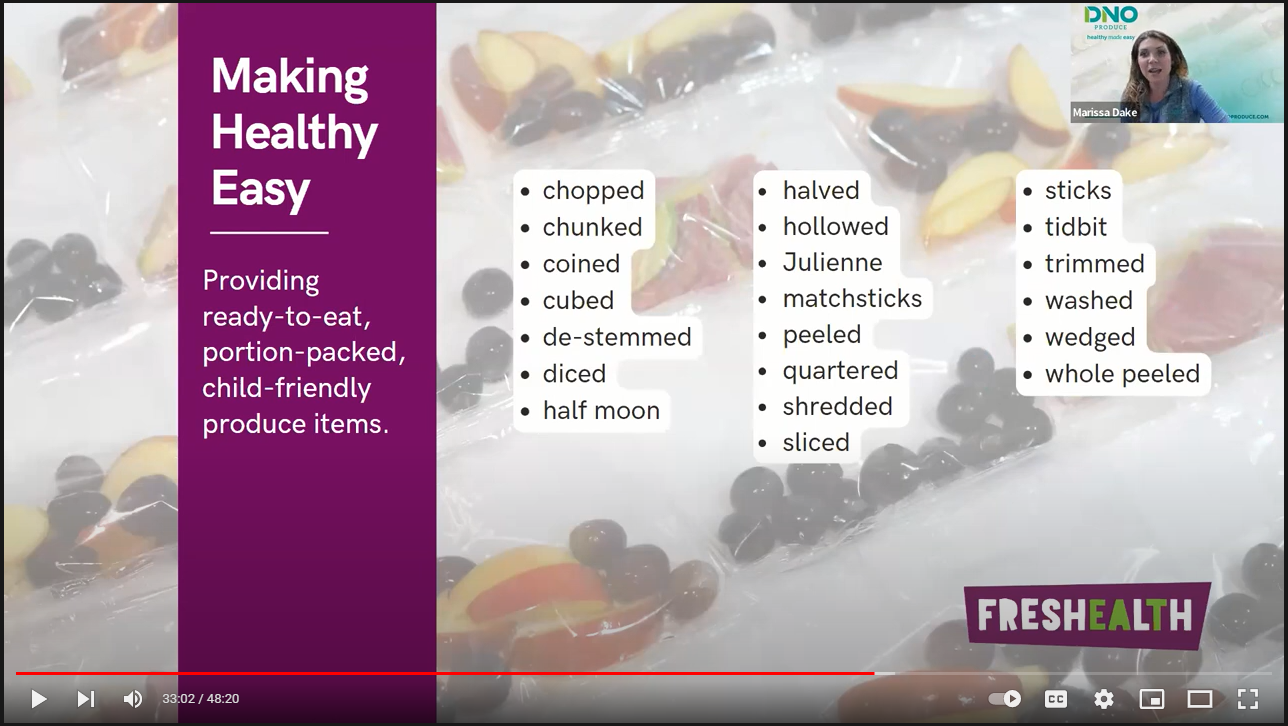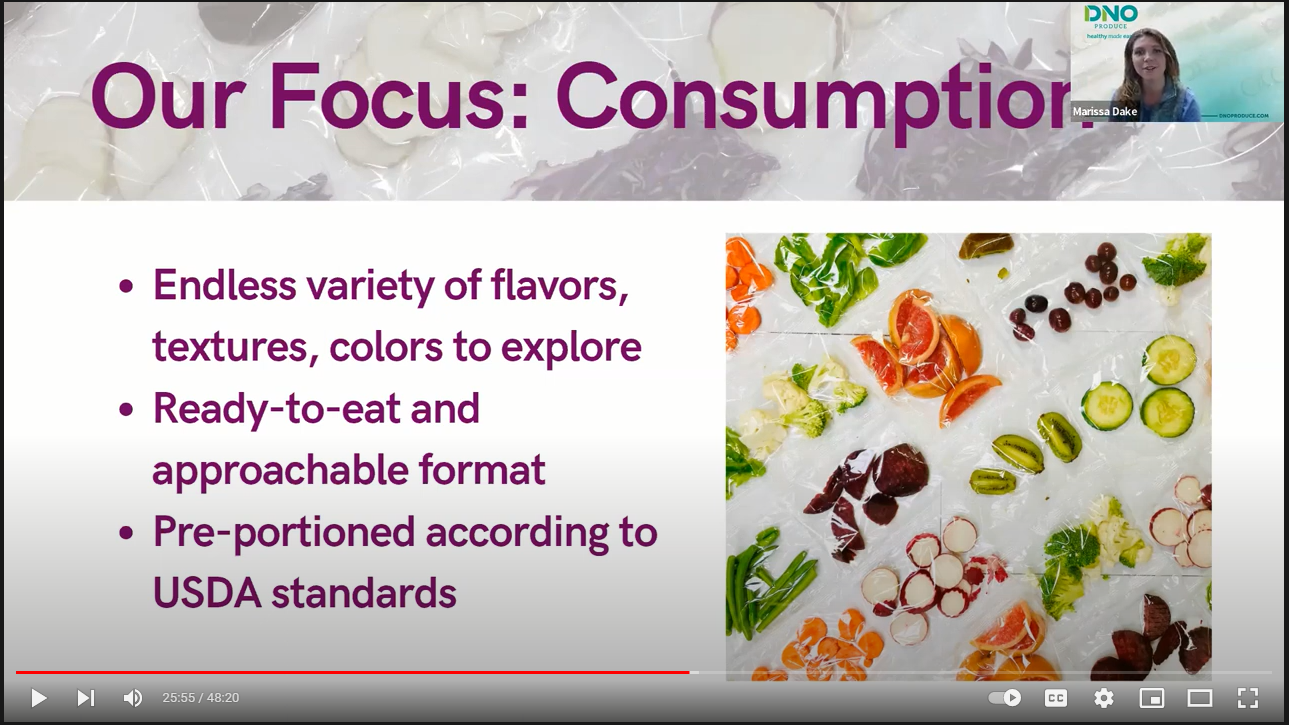From Farm to Tray: Company works to replace smiley fries with ‘Dino Spike’ asparagus & other fresh produce on school lunch menus
This article originally appeared in BG Independent News. Click here to read the original article.
Thinking of school lunches may conjure images of square pizzas, smiley fries, hard-to-identify meats, and other highly processed or easily reheated frozen foods. DNO Produce, a produce processor and distribution company out of Cleveland, Ohio, hopes to change that.
DNO Produce defines itself as a company “providing fresh, healthy, and easy solutions for partners in school nutrition programs, food service, food manufacturing, meal kit, and retail industries.”
In CIFT’s August Agribusiness Forum, “From Farm Field to Lunchroom Table: The Power of Fresh Produce in School,” presenter Marissa Dake, from DNO, explained how.
Dake brings a uniquely informed perspective to the table. Growing up on a family farm in Kansas inspired her to pursue a career in food policymaking on Capitol Hill. When the pandemic hit, creating massive supply chain disruptions, her direction quickly shifted. She left Washington and returned to Kansas to coordinate immediate food distribution at Operation Food Secure, a non-profit organization in Topeka. This work eventually brought her to the “often forgotten piece” of food logistics – distribution. She became the director of communications and public affairs at DNO Produce in 2021.
By working with schools and within USDA nutritional and portion guidelines, DNO has been successful in getting fresh, healthy food into the hands of school children across 15 states. Schools can utilize federal reimbursements to purchase produce directly from the company, providing students with equitable access to fresh fruits and veggies at school each day.
According to Dake, this is a central goal to the company, to make fresh food both “accessible and easy to consume.”
Physical access is not enough, however; children’s perceptions of foods are also important. Offering a wide variety of colors, textures, and flavors, DNO attempts to engage children’s senses, making fresh food an intriguing and tactile experience. Instead of mushy canned peas or cooked carrots, they are providing items like sweet watermelon shaped radishes, crunchy jicama sticks, rainbow cauliflower, and the aptly named “Dino Spike” asparagus.
DNO uses pre-packaging and preparation; apples are pre-sliced, cucumbers are crinkle cut, watermelon comes in a single serving cup with a pull off top. The packaged and portioned approach makes the product accessible for little hands to eat and easier for lunchrooms to prepare but is heavy on packaging waste.
When asked about the heavy use of plastics and excess waste, Dake indicated that the company is hopeful that packaging technology advancement would soon allow them to use more sustainable packaging in the future.
Dake expressed that being present in the school lunchroom allows DNO the unique opportunity to not only provide daily nutrition, but to also influence the tastes and buying habits of these children in the future. In this case, she notes, the cultivation of lifelong consumers of fresh fruits and vegetables is not only good for bottom line for DNO, but also supports the health of today’s children and tomorrow’s adults.
Thursday’s presentation was part of CIFT’s 2022 Agribusiness Forum series, which aims to connect agribusiness, manufacturing, technology, and government policy as well as educate the public on various issues in these areas. CIFT’s Agribusiness Forums are held monthly, on the third Thursday of the month, February through October at the Northwest Ohio Cooperative Kitchen (NOCK).Northwest Ohio Cooperative Kitchen (NOCK).



